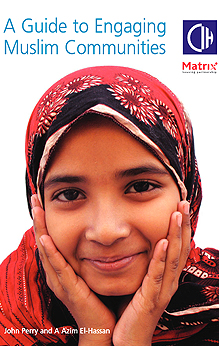
Author: John Perry and A Azim El-Hassan
Publisher: Matrix Housing Partnership
Release Date: 2008
Pages: 24
Source: No longer available on the website
The type of housing tenure varies considerably within Muslim communities in Britain. For example the Bangladeshis and Somalis in Tower Hamlets and Sheffield are mainly social housing tenants, while Pakistanis in Bradford live in older, owner-occupied neighbourhoods. Of the approximately 425,000 Muslim households in England and Wales, 52 per cent were owner occupied (owned outright or via a mortgage), 28 per cent were social housing tenants, 16 per cent were living in privately rented accommodation, while the balance were living in accommodation rent free (2001 Census, ONS Table 4.26).
This study of housing association tenants reports that Muslim households’ satisfaction with their homes was lower than that of tenants overall. The report provides examples of some approaches that have been adopted by housing associations to improve awareness of needs. In one case study the lesson was “not to underestimate the role and power of women….in many cases it is women who take decisions and have control inside the family home”. So much for the stereotype of Muslim households!
The report also cites good practice examples in the planning of sheltered housing schemes – “Bristol City Council consulted community organisations to build a careful picture of what would create an attractive scheme, sensitive to different needs. Some requirements conflicted (eg preferences for showers or baths); on others compromise could be reached (eg sharing a multi-faith prayer room). It was less difficult to ensure that several flats have WCs that are not oriented towards Mecca…”.
This report notes that one reason for the high level of social housing “may be that few mortgage products are available in Britain which comply with Shariah (Islamic) law. . . however there is a gap in the social housing sector, as there are often no suitable products for low cost home ownership supported with Housing Corporation funding. In its response to the Home Ownership Task Force report, the government promised to resolve with the Housing Corporation how to make suitable products available. In the meantime a pilot mortgage is being trialed by the Metropolitan Home Ownership.”
The proportion of Muslim households living in ‘rent free’ accomodation is twice the national average and points to adult children living with their parents. This ties in with other socio-economic findings from the 2001 Census, in particular the high proportion of Muslim women who are ‘economically inactive’ because they are ‘looking after home/family’. The trend for Muslim households to include one or more elderly parent needs to be factored in house-building schemes, if they seek to be true to residents’ needs.
